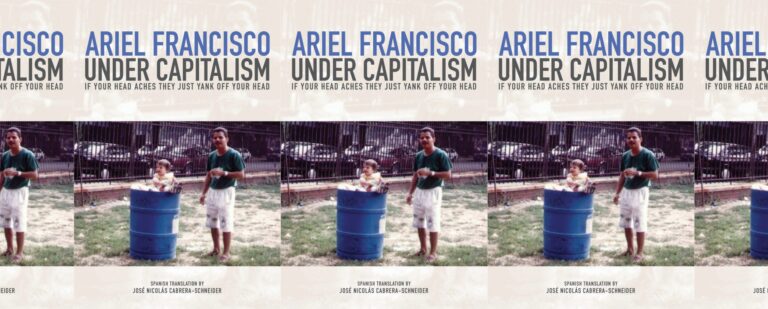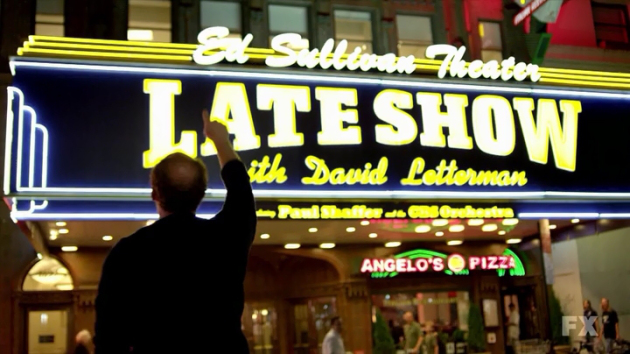The Ploughshares Round-Down: We’re Over-Reliant on the Bucket List
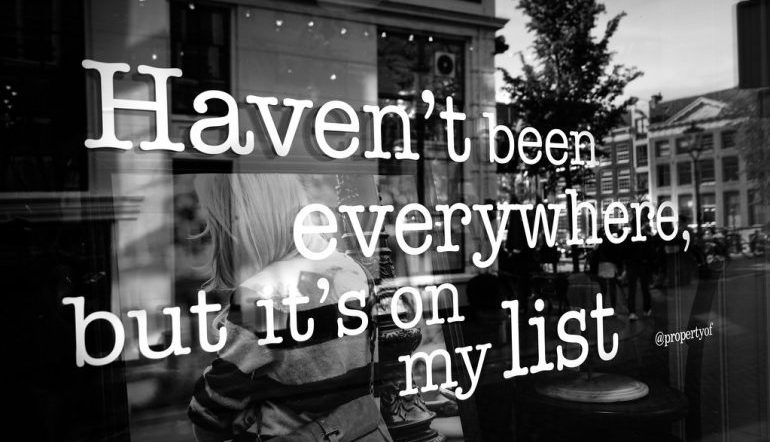
Having long hated the term “bucket list,” and having nevertheless thought about making one for myself (#MomentsOfWeakness), I was a complete sucker for Rebecca Mead’s recent New Yorker essay in which she questions its merits. In “Kicking the Bucket List,” Mead asks whether such a list actually helps us carpe diem-ize our otherwise thoughtless lives, arguing that it can instead turn sought-after moments into mere items to check off: more things “to be got through”–so we can say “DONE” and move on.
“This,” she writes,
is the YOLO-ization of cultural experience, whereby the pursuit of fleeting novelty is granted greater value than a patient dedication to an enduring attention . . . The notion of the bucket list legitimizes this diminished conception of the value of repeated exposure to art and culture. Rather, it privileges a restless consumption, a hungry appetite for the new. I’ve seen Stonehenge. Next?
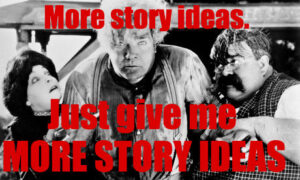
I would say that the “Listed It, Did It, NEXT” compulsion also reveals an attempt to keep experience in check. By approaching life like it’s a series of things to get through, we can often avoid the emotions, doubts, or questions that come up when we sit deeply with an experience. Basically, Mead’s recommended “lingering” with an experience can lead to unpredictable psycho-emotional messes. Who has time for it?
So anyway, for days after reading “Kicking the Bucket List,” I was hyper-aware of my task-oriented approach to pretty much everything. I found myself skimming and scanning articles and books, doing something less like “reading” than “harvesting story ideas for future writing deadlines.” I realized how often I cut things short–even my own thoughts–as soon as I was no longer certain of their “utility.” So when Ezekiel Emmanuel’s “Why I Hope to Die at 75” posted a week later, it’s no surprise I was both curious and repelled. Setting a hoped-for expiration date is like the best example ever of cutting something off at the perimeter of its presumed utility and control.
Basically, Emmanuel believes seventy five’s a good target age: ensuring (-ish) that he’ll die while still healthy, creative, and productive, and that he’ll live on in his loved ones’ memories as vibrant and independent. On the surface, this seems pretty natural, even laudable. But if you dive in, the essay betrays not only the author’s troubling ableism (Incapacitation? Dependence?! Who’d want to be remembered like THAT?!), but also the same obsession with productivity that drove Mead’s criticism of the “Bucket List.” Once Emmanuel’s potential for calculable levels of (very specific types of) contribution is lowered, he wants out. After all, by that point, all his boxes will be checked:
By the time I reach 75, I will have lived a complete life. I will have loved and been loved. My children will be grown and in the midst of their own rich lives. I will have seen my grandchildren born and beginning their lives. I will have pursued my life’s projects and made whatever contributions, important or not, I am going to make.
Emmanuel has a narrow view of what makes life “complete,” and what counts as “contributions.” And while few of us would argue with the desire for high quality of life, it’s worrying that Emmanuel aligns said quality so precisely with physical independence and health, with perfect mental acuity, with “productivity” and commodifiable originality. He backpedals from this alignment via regular disclaimers, but his measure of value still hovers around this quote:
The deadline [of 75 years] also forces each of us to ask whether our consumption is worth our contribution.
What interests me about this “Value = Contribution-Consumption” equation is how it helps Emmanuel keep life within predictable limits, protecting him from questions and ideas he doesn’t want to have to address. For example, he insists that his deadline forces him to address the “deep existential questions” that most of us avoid by pretending we’ll never die. But the truth is, Emmanuel’s deadline is designed to skirt the questions and circumstances he apparently fears: To what extent is my value dependent on my physical and mental health–two things I know I can’t control? Can I love myself if I’m not “contributing” in the specific ways that make me feel valuable? And what does that last question say about whether I can love others who aren’t contributing in those ways? Emmanuel’s ostensibly courageous end-of-life chatter actually serves to keep his life tidily mapped: structured tightly around career, creation, and procreation. It lets him believe he’s relatively safe from territories he doesn’t want to navigate.
And I can’t blame him. Whether we’re making Age-75 Deadlines, personal bucket lists, or colossal to-do lists that push us for days without sleep, we like to keep our lives safely within what we’ve chosen to navigate. Turning life into Tasks To Complete makes it map-able, shrinks it into something manageable.
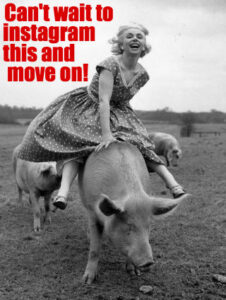
Except of course that it doesn’t. Life’s still the same messy, unwieldy, un-gatherable thing that’s motivated mythologies, stories, poetry, music, anything to contain or explain or sustain it. And we know this. We so know this. Even Emmanuel admits he has no guarantees, while going on to defend his plan to rely on them. So what’s the deal? What’s with our insistent planning, list-making, our absurd attempts to drive experience through the eye of a needle?
Part of it is that we just need lists. (Yep. Keep making them.) And part of it is that we’re over-committed and life is short. We really don’t have much time. So by all means, go speed your way through museums, or snap quick photos of historic moments. Sometimes that’s all we have. But we can also recognize when these kinds of frenetic encounters result from our fear of losing control: our fear of emotions, accidents, experiences, and/or relationships that could turn us into something we don’t know how to be.
I’m not suggesting we try to fight any and all control impulses. We don’t have time for that either, and sometimes the impulses protect us. But recognizing them–seeing that a desire for control may be what’s keeping us from finishing our novel, from really hearing a friend, from slowly reading a poem out loud–that very recognition could be the beginning of something expansive and unpredictably creative. This isn’t some quasi-religio-hippie advocation of “surrender.” (Ew.) It’s more like a promo for the ridiculous Unsettling that happens when we sit attentively (and for an uncomfortably long time) with questions, with art, with poetry, sound, or human touch.
I’ve Task-Listed my life enough (and skirted enough difficult questions) to know that sometimes, I just can’t handle being unsettled. That’s okay; there’s room for compassion with this kind of thing. But rather than recommendations for Bucket Lists, Career Goals, or Life Deadlines, I’m wondering if we could use more advice on how to brace ourselves for the feeling of being pushed way out of bounds: of having to be what we didn’t want to be, what we don’t know how to be. Maybe we could use more kind reminders to stay, to feel life being as terrifyingly uncertain as it undoubtedly is.
